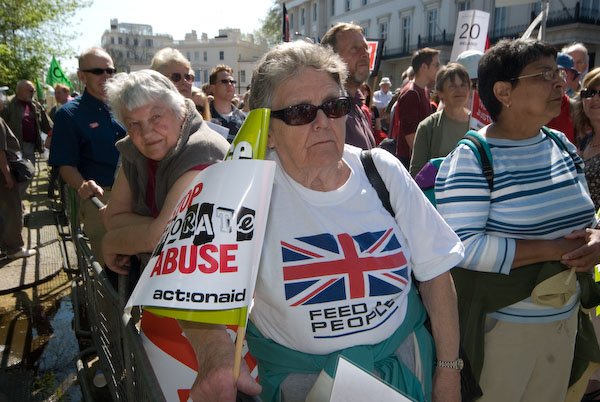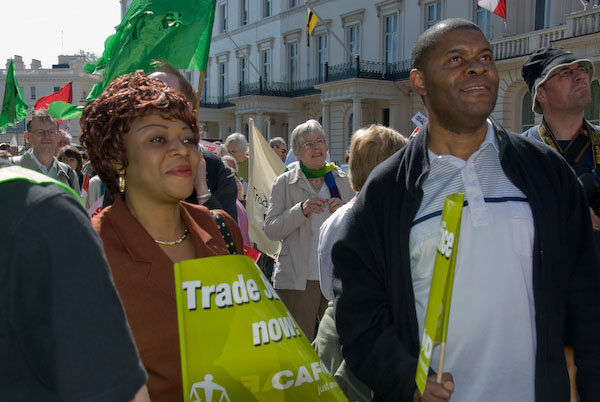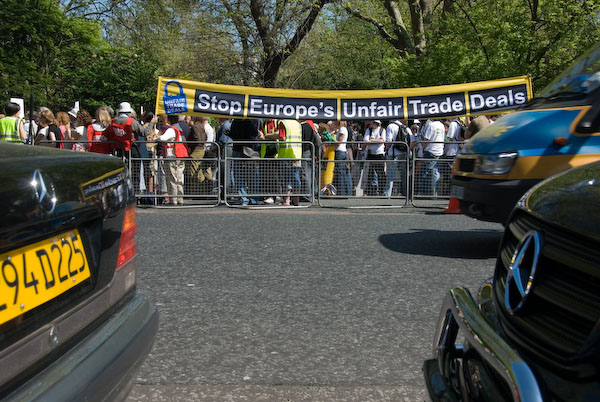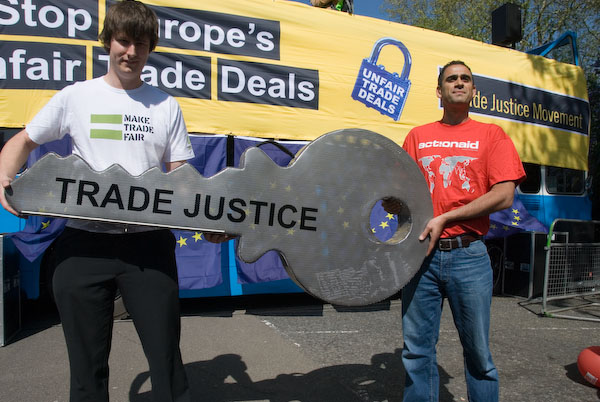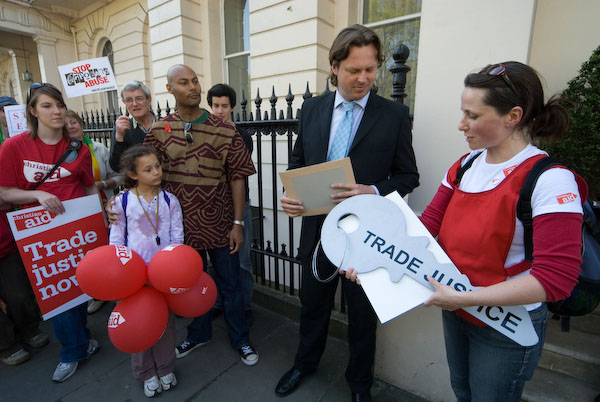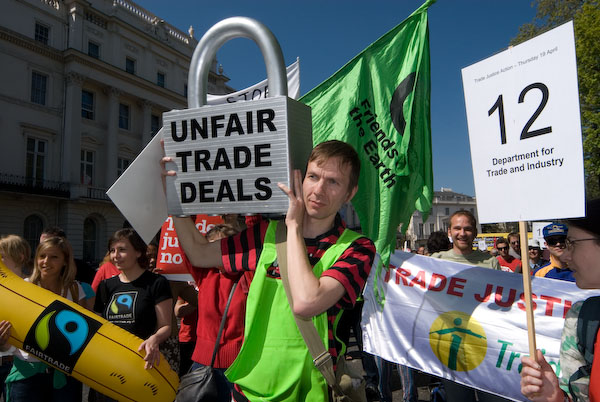Vedanta AGM Protest: Westminster, Wednesday 28 July 2010
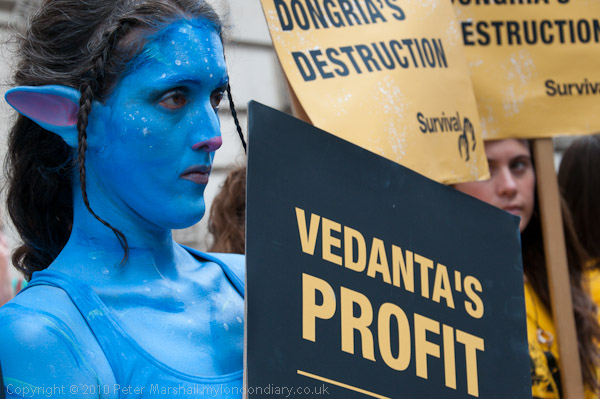
The protest outside Vedanta’s AGM held in Westminster on Wednesday 28th July 2010 was the first time I really became aware of the company and its mining activities. This protest concentrated on its plans to displace and wipe out an ancient civilisation in the Niyamgiri Hills of Orissa, India by bauxite mining.
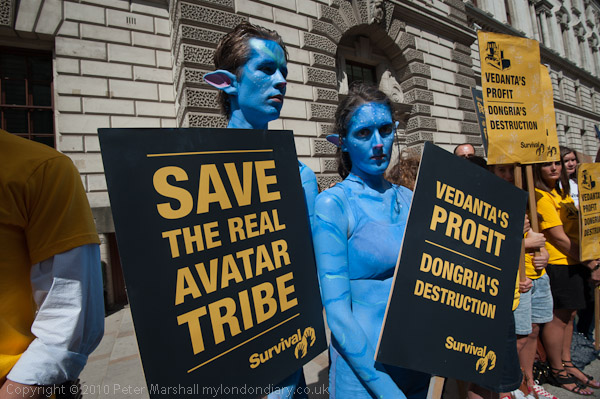
The hills which would have been destroyed by their mining are sacred to the region’s Adivasis, primarily the Dongria Kondh tribes. By 2010 Foil Vedanta who organised the protest were saying that Vedanta had caused more than 100 deaths in the area though accidents, police shooting, forced displacement, injury and illness.
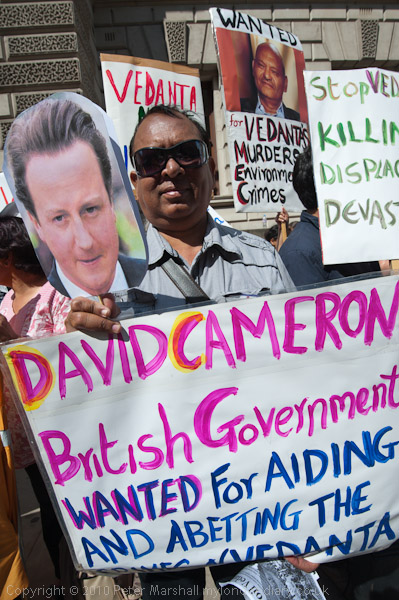
More than a thousand people have already been displaced, with 8000 under threat, moved away from their traditional sources of income and dumped into shanty towns where there is no work. Thousands of acres of fertile agricultural land have been destroyed, rivers and streams disrupted and drinking water contaminated by fly ash and toxic red mud.
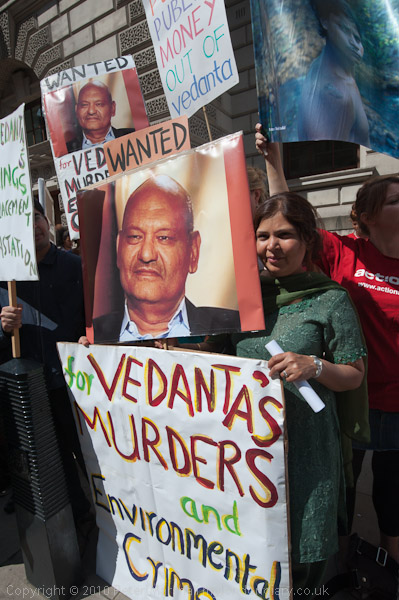
Vedanta Resouces is an Indian company founded and still run by the Agarwal family, but in 2003 was listed on the London Stock Exchange following a two year ban by the Securities Exchange Board of India from accessing capital markets after they were found guilty of cornering shares and rigging share prices.

A damning report, Vedanta’s Billions: Regulatory failure, environment and human rights‘, issued by Foil Vedanta in 2018 accuses “the City of London and the Financial Conduct Authority” of minimising the risks associated with Vedanta’s legal violations and human rights and environmental abuses’ and failing to investigate or penalise any London listed mining company on these grounds.”

Among other crimes, the report names Vedanta as “the latest in a string of London listed mining companies linked to the murder or ‘massacre’ of protesters, including Lonmin, Glencore, Kazakhmys, ENRC, Essar, GCM Resources, Anglo Gold Ashanti, African Barrick Gold and Monterrico Metals.”

As well as Foil Vedanta the campaign against them was supported by Amnesty International, Survival International and Action Aid, and a number of campaigners had become shareholders so they could attend the meeting and attempt to question the company’s activities – and these included Bianca Jagger. Her presence and that of two bright blue aliens from the tribe destroyed in the James Cameron film ‘Avatar’ ensured that the protest for once got some press coverage. Also supporting the protest were the South Asia Solidarity Group, South Asian Alliance, Brent Refugee and Migrant Forum and London Development Education Centre.

The campaign against Vedanta had already been successful in getting various shareholders to end their investment, including the Church of England, the Joseph Rowntree Trust and the Dutch pensions company in ending their investments due to concerns about its approach to human rights and the environment. And continued protests by Foil Vedanta undoubtedly played a part in the company’s decision to de-list from the London Stock Exchange in 2018.

The company was helped to list in London by the British Government’s Department of Trade and Industry and the Department for International Development (DfID), and was getting continued support from the DfID Building Partnerships for Development programme and the Orissa ‘Drivers for Change’ research project, and former British Ambassador to Saudi Arabia and High Commissioner of India David Gore-Booth had been a directory.

Its billionaire CEO Anil Agarwal was said to have close links with the extremist umbrella group for Indian Hindu right-wing organistions, Sangh Parivar, said to be responsible for many attacks on Muslim and Christian communities in Orissa, Gujurat and other parts of India.

The Foil Vedanta report has a “special focus on illegal mining in Goa, pollution and tax evasion in Zambia, as well as illegal expansion and pollution in Thoothukudi, Tamil Nadu, industrial disaster at Korba in Chhattisgarh, land settlement and pollution issues in Punjab, displacement and harassment of activists in Lanjigarh, Odisha, and a mineral allocation scam in Rajasthan.“
You can see and read more about the 2010 protest on My London Diary at Vedanta AGM Protest.
Flickr – Facebook – My London Diary – Hull Photos – Lea Valley – Paris
London’s Industrial Heritage – London Photos
All photographs on this page are copyright © Peter Marshall.
Contact me to buy prints or licence to reproduce.

